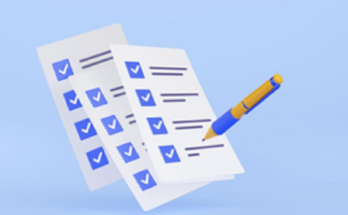Corporate negotiations can put you in a dilemma where you have to get the best deal and make the other party happy as well. But the real challenge comes when you’re doing this in a global business world where English is the dominant language. As such, achieving English professional proficiency goes beyond just speaking fluently; it’s also about knowing how to use the language in high-pressure settings, like meetings or tough negotiations with clients.
Think about how great it would be to present your case, negotiate terms, and respond quickly with confidence. That skill gives you a big edge! It’s not just about the words; how you say them—your tone, clarity, and precision—matters too.So, how can you improve your language skills in these high-stakes scenarios? Let’s explore how sharpening your English can help you succeed in negotiations.
Building the Foundation for English Professional Proficiency
Building a strong foundation is essential before exploring the tactics for improving your English proficiency for corporate negotiations. Achieving professional proficiency in this global language requires more than understanding; it requires becoming fluent in the context of business conversations, negotiations, and legal or technical jargon.
Here are a few core areas to focus on:
- Vocabulary: Expand your knowledge of business-related words and phrases.
- Grammar: Ensure that your writing and speaking skills are polished and professional.
- Contextual Usage: Understand how words are used in various professional settings and industries.
The Importance of English Proficiency in Corporate Negotiations
The stakes are high in corporate negotiations, and the right communication can lead to long-term partnerships, higher profitability, and strategic advantages. English professional proficiency enables you to clearly present your position, articulate your needs, and respond appropriately to challenges or counteroffers. It can help you navigate cross-cultural environments, where communication nuances are key to building trust and understanding.
This level of proficiency gives you the confidence to express your ideas clearly, avoid miscommunications, and handle high-pressure discussions effectively.
Steps to Master English Professional Proficiency for Negotiations
If you aim to succeed in corporate negotiations, mastering your English skills is a continuous journey. Here are several steps to help you reach professional English proficiency:
1. Focus on Business-Specific Language
You’ll need a firm grasp of industry-specific terminology and business jargon in negotiations. While casual English can help in day-to-day interactions, business discussions require more technical and specialized language.
- Familiarize yourself with key terms related to contracts, finance, legal terms, and operational processes.
- Regularly review case studies, business reports, and industry publications to stay updated on current terminology.
2. Hone Your Speaking Skills
Speaking clearly and confidently is essential in negotiations. Practice speaking in English, especially professionally, to build your confidence. Consider these methods:
- Simulate Negotiations: Engage in role-play sessions to simulate real-life negotiation scenarios.
- Watch Corporate Interviews: Observe interviews and discussions of top leaders to learn how they express themselves.
- Public Speaking Groups: Join groups like Toastmasters to practice delivering speeches in front of others and sharpen your communication skills.
3. Enhance Listening and Comprehension
In corporate negotiations, listening is just as important as speaking. Understanding what your counterpart says allows you to pick up on subtle cues, read between the lines, and respond appropriately.
- Watch Business News: Regularly watching business news will expose you to professional discussions and increase your understanding of complex corporate subjects.
- Take Notes During Discussions: Train yourself to summarize key points as you listen during meetings or webinars, improving your comprehension.
4. Improve Your Written Communication
Written communication is often an overlooked component of negotiations. Whether it’s drafting emails, contracts, or proposals, your writing must be clear, concise, and error-free.
- Learn to Write Concisely: Avoid lengthy and complex sentences in your business writing. Aim for clarity.
- Use Templates: You can refer to templates for consistency in negotiation-related emails, contracts, and proposals.
- Proofread Carefully: Always review your written documents to eliminate grammar or spelling mistakes that could undermine your professional image.
5. Expand Your Cultural Awareness
English is a global language, and corporate negotiations often happen across cultures. Learning about different business cultures can prevent miscommunications and improve your relationship with international clients.
- Learn Business Etiquette: Every country has its norms regarding negotiations. Some cultures value directness, while others prefer a more diplomatic approach.
- Adapt Your Language: Be ready to adjust your tone and formality depending on who you’re speaking with.
The Bottom Line!
Mastering English professional proficiency is valuable for anyone involved in corporate negotiations. By improving your language skills, you can communicate more clearly, build better relationships, and negotiate effectively. Practice speaking and listening in business settings, seek feedback, and take courses to enhance your skills.
As you grow more confident in your English abilities, you will find yourself navigating negotiations more quickly and achieving better results. Investing time in this area can open up new opportunities and help you succeed in the competitive business world.




